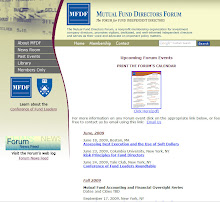We have identified other priorities that I believe the government will need to address through the TARP and other existing authorities. In particular, by investing only a relatively modest share of TARP funds in a Federal Reserve liquidity facility, we can improve securitization in this market and have a significant impact on the availability of consumer credit.
And we need to continue our efforts to use a variety of authorities to reduce avoidable foreclosures. The government has made substantial progress on that front, through HUD programs, through the FDIC's program with IndyMac, through our support and leadership of the HOPE NOW Alliance, and through the new GSE servicer guidelines announced last week that will set a new standard for the entire industry. While I understand the interest in spending TARP resources on other approaches, the efforts already underway will do more to prevent foreclosures than might have been achieved through very large purchases of mortgage-related securities through the TARP.
Although we are not planning to initiate another capital program beyond those already announced, an emphasis on capital seems to us to be the better strategy going forward. In the weeks since enactment of EESA, we have seen that capital purchases are clearly powerful in terms of impact per dollar of investment, which is a major advantage under the current circumstances. More capital enables banks to take losses as they write down or sell troubled assets. And stronger capitalization is also essential to increasing lending which, although difficult to achieve during times like this, is essential to economic recovery.
Our current Capital Purchase Program for banks and thrifts has already dispersed $148 billion, and we are processing many more applications. And yesterday we posted the term sheet for participation for non-publicly traded banks, another important source of credit in our economy. We are developing a matching program for possible future use which could apply to banks and/or non-bank financial institutions.
Paulson also answered two very key questions, which he also addressed in a recent New York Times article:
First: "Congress gave you the authorities you requested, and the economy has only gotten worse. What went wrong and why won't you use this authority for other industries?"
[T]he purpose of the financial rescue legislation was to stabilize our financial system and to strengthen it. It is not a panacea for all our economic difficulties. The crisis in our financial system had already spilled over into our economy and hurt it. It will take a while to get lending going and repair our financial system, which is essential to an economic recovery. This won't happen as fast as any of us would like, but it will happen much, much faster than it would have had we not used the TARP to stabilize our system. Put differently, if Congress had not given us the authority for TARP and the Capital Purchase Program and our financial system had continued to shut down, our economic situation would be far worse today.
Second: "[i]f housing and mortgages are at the root of our economic difficulties, why aren't you addressing this?"
[T]he most important thing we can do to mitigate the housing correction and reduce the number of foreclosures is to increase access to lower cost mortgage lending. The actions we have taken to stabilize and strengthen Fannie Mae and Freddie Mac, and through them to increase the flow of mortgage credit, together with our bank capital program, are powerful actions to promote mortgage lending. We are also working actively to reduce preventable foreclosures.
The full text of Secretary Paulson's testimony is available at: http://www.treas.gov/press/releases/hp1279.htm
The text of Secretary Paulson's recent New York Times op-ed is available at: http://www.treas.gov/press/releases/hp1280.htm





